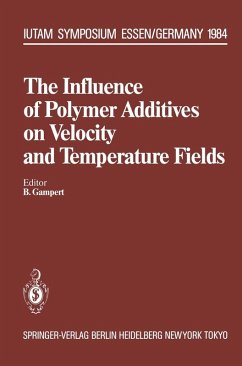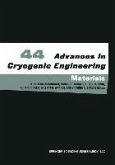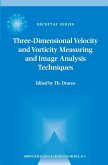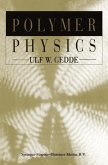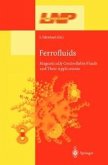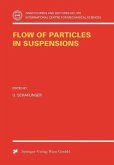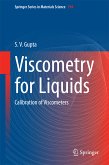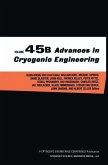The Influence of Polymer Additives on Velocity and Temperature Fields (eBook, PDF)
Symposium Universität - GH - Essen, Germany, June 26-28, 1984
Redaktion: Gampert, Bernhard
73,95 €
73,95 €
inkl. MwSt.
Sofort per Download lieferbar

37 °P sammeln
73,95 €
Als Download kaufen

73,95 €
inkl. MwSt.
Sofort per Download lieferbar

37 °P sammeln
Jetzt verschenken
Alle Infos zum eBook verschenken
73,95 €
inkl. MwSt.
Sofort per Download lieferbar
Alle Infos zum eBook verschenken

37 °P sammeln
The Influence of Polymer Additives on Velocity and Temperature Fields (eBook, PDF)
Symposium Universität - GH - Essen, Germany, June 26-28, 1984
Redaktion: Gampert, Bernhard
- Format: PDF
- Merkliste
- Auf die Merkliste
- Bewerten Bewerten
- Teilen
- Produkt teilen
- Produkterinnerung
- Produkterinnerung

Bitte loggen Sie sich zunächst in Ihr Kundenkonto ein oder registrieren Sie sich bei
bücher.de, um das eBook-Abo tolino select nutzen zu können.
Hier können Sie sich einloggen
Hier können Sie sich einloggen
Sie sind bereits eingeloggt. Klicken Sie auf 2. tolino select Abo, um fortzufahren.

Bitte loggen Sie sich zunächst in Ihr Kundenkonto ein oder registrieren Sie sich bei bücher.de, um das eBook-Abo tolino select nutzen zu können.
- Geräte: PC
- ohne Kopierschutz
- eBook Hilfe
- Größe: 28.14MB
Andere Kunden interessierten sich auch für
![Advances in Cryogenic Engineering Materials (eBook, PDF) Advances in Cryogenic Engineering Materials (eBook, PDF)]() Advances in Cryogenic Engineering Materials (eBook, PDF)233,95 €
Advances in Cryogenic Engineering Materials (eBook, PDF)233,95 €![Three-Dimensional Velocity and Vorticity Measuring and Image Analysis Techniques (eBook, PDF) Three-Dimensional Velocity and Vorticity Measuring and Image Analysis Techniques (eBook, PDF)]() Three-Dimensional Velocity and Vorticity Measuring and Image Analysis Techniques (eBook, PDF)161,95 €
Three-Dimensional Velocity and Vorticity Measuring and Image Analysis Techniques (eBook, PDF)161,95 €![Polymer Physics (eBook, PDF) Polymer Physics (eBook, PDF)]() U. W. GeddePolymer Physics (eBook, PDF)97,95 €
U. W. GeddePolymer Physics (eBook, PDF)97,95 €![Ferrofluids (eBook, PDF) Ferrofluids (eBook, PDF)]() Ferrofluids (eBook, PDF)73,95 €
Ferrofluids (eBook, PDF)73,95 €![Flow of Particles in Suspensions (eBook, PDF) Flow of Particles in Suspensions (eBook, PDF)]() Flow of Particles in Suspensions (eBook, PDF)40,95 €
Flow of Particles in Suspensions (eBook, PDF)40,95 €![Viscometry for Liquids (eBook, PDF) Viscometry for Liquids (eBook, PDF)]() S. V. GuptaViscometry for Liquids (eBook, PDF)73,95 €
S. V. GuptaViscometry for Liquids (eBook, PDF)73,95 €![Advances in Cryogenic Engineering (eBook, PDF) Advances in Cryogenic Engineering (eBook, PDF)]() Advances in Cryogenic Engineering (eBook, PDF)233,95 €
Advances in Cryogenic Engineering (eBook, PDF)233,95 €-
-
-
Produktdetails
- Verlag: Springer Berlin Heidelberg
- Seitenzahl: 446
- Erscheinungstermin: 6. Dezember 2012
- Englisch
- ISBN-13: 9783642826320
- Artikelnr.: 53101425
Dieser Download kann aus rechtlichen Gründen nur mit Rechnungsadresse in A, B, BG, CY, CZ, D, DK, EW, E, FIN, F, GR, HR, H, IRL, I, LT, L, LR, M, NL, PL, P, R, S, SLO, SK ausgeliefert werden.
- Herstellerkennzeichnung Die Herstellerinformationen sind derzeit nicht verfügbar.
Session I.- * Turbulent drag reduction by. polymer additives: a survey.- Session 2 Extensional Viscosity.- * A review on extensional viscosity.- Flow-induced conformation change in dilute polymer solution - A comparison between non-ionic polymers and polyelectrolytes.- The nature of flow through porous media.- An experimental study of polymer induced drag for flows through porous medium.- Session 3 Molecular Parameters I.- * Molecular parameters as a basis of structure-property-relations in the flow of polymer solutions.- Drag reduction of non-ionic surfactant mixtures.- The influence of molecular weight and molecular weight distribution on drag reduction and mechanical degradation in turbulent flow of highly dilute polymer solutions.- Session 4 Molecular Parameters II.- Influence of molecular parameters on laminar non-Newtonian and on turbulent flows of dilute polymer solutions.- The peculiarities of the structure of wall turbulence and the mechanism of drag reduction by polymer additives.- # The influence of molecular mass distribution, size and elasticity of macromolecules on friction reduction effect.- Characterization of dilute Polyacrylamide and polystyrene solutions by means of porous media flow.- The effect of grafted and ungrafted guargum on turbulent flow of water and on hydraulic conductivity of soil.- Session 5 Molecular Parameters III.- * Some fringe effects of the flow on the macromolecules in dilute polymer and on their non-Newtonian behaviour.- Aging of aqueous polymer solutions.- Model for effects of degradation on polymer drag reduction.- Elastico-viscous effects in complex flows.- Session 6 Theories I.- Turbulence measurements with viscoelastic flow in an open channel.- A mechanism for polymer drag reduction.- # A turbulence model for drag reductiondilute polymer solutions in boundary layer on a flat plate.- Session 7 Structures in Turbulence I.- * The structure near the wall in turbulent shear flow.- Statistical measurements in the turbulent flow of dilute drag-reducing polymer solutions in a round tube.- The vorticity diffusion of ?-vortices in drag reducing solutions.- Session 8 Structures in Turbulence II.- Influence of polymer additives on neutral stability of Görtler vortices.- ° Laser-Doppler measurements of vortex-shedding past small circular cylinders in dilute polymer solutions.- Influence of polymer additives on turbulence in a mixing layer.- The turbulent mixing of viscoelastic fluids in pipe flow.- Session 9 Theories II.- * A qualitative understanding of drag reduction by polymers.- Predictions of turbulent drag reduction for a linear viscoelastic fluid.- An engineering approach to modeling complex flow behavior of polymer solutions.- Session 10 Injection Experiments.- Heterogeneous drag reduction in turbulent pipe flow.- Annular injection of concentrated polymer solutions into the wall region of a turbulent pipe flow.- Turbulence structure of a developing duct flow with near-wall injection of drag reducing polymers.- Session II.- * Today and future possibilities of industrial applications of drag reduction.- Session 12 Pressure Fields, Cavitation.- Effects of a non-Newtonian fluid on the velocity distribution and pumping efficiency of peristaltic pumping.- Effect of polymer solutions on tip vortex cavitation.- The influence of non-Newtonian liquids on the cavitation thresholds and on the pressure pulse velocity in two-phase mixtures.- Session 13 Heat and Mass Transfer.- Nucleate boiling in drag-reducing polymer solutions.- Mass transfer in elongational flows of dilute polymer solutions.
Session I.- * Turbulent drag reduction by. polymer additives: a survey.- Session 2 Extensional Viscosity.- * A review on extensional viscosity.- Flow-induced conformation change in dilute polymer solution - A comparison between non-ionic polymers and polyelectrolytes.- The nature of flow through porous media.- An experimental study of polymer induced drag for flows through porous medium.- Session 3 Molecular Parameters I.- * Molecular parameters as a basis of structure-property-relations in the flow of polymer solutions.- Drag reduction of non-ionic surfactant mixtures.- The influence of molecular weight and molecular weight distribution on drag reduction and mechanical degradation in turbulent flow of highly dilute polymer solutions.- Session 4 Molecular Parameters II.- Influence of molecular parameters on laminar non-Newtonian and on turbulent flows of dilute polymer solutions.- The peculiarities of the structure of wall turbulence and the mechanism of drag reduction by polymer additives.- # The influence of molecular mass distribution, size and elasticity of macromolecules on friction reduction effect.- Characterization of dilute Polyacrylamide and polystyrene solutions by means of porous media flow.- The effect of grafted and ungrafted guargum on turbulent flow of water and on hydraulic conductivity of soil.- Session 5 Molecular Parameters III.- * Some fringe effects of the flow on the macromolecules in dilute polymer and on their non-Newtonian behaviour.- Aging of aqueous polymer solutions.- Model for effects of degradation on polymer drag reduction.- Elastico-viscous effects in complex flows.- Session 6 Theories I.- Turbulence measurements with viscoelastic flow in an open channel.- A mechanism for polymer drag reduction.- # A turbulence model for drag reductiondilute polymer solutions in boundary layer on a flat plate.- Session 7 Structures in Turbulence I.- * The structure near the wall in turbulent shear flow.- Statistical measurements in the turbulent flow of dilute drag-reducing polymer solutions in a round tube.- The vorticity diffusion of ?-vortices in drag reducing solutions.- Session 8 Structures in Turbulence II.- Influence of polymer additives on neutral stability of Görtler vortices.- ° Laser-Doppler measurements of vortex-shedding past small circular cylinders in dilute polymer solutions.- Influence of polymer additives on turbulence in a mixing layer.- The turbulent mixing of viscoelastic fluids in pipe flow.- Session 9 Theories II.- * A qualitative understanding of drag reduction by polymers.- Predictions of turbulent drag reduction for a linear viscoelastic fluid.- An engineering approach to modeling complex flow behavior of polymer solutions.- Session 10 Injection Experiments.- Heterogeneous drag reduction in turbulent pipe flow.- Annular injection of concentrated polymer solutions into the wall region of a turbulent pipe flow.- Turbulence structure of a developing duct flow with near-wall injection of drag reducing polymers.- Session II.- * Today and future possibilities of industrial applications of drag reduction.- Session 12 Pressure Fields, Cavitation.- Effects of a non-Newtonian fluid on the velocity distribution and pumping efficiency of peristaltic pumping.- Effect of polymer solutions on tip vortex cavitation.- The influence of non-Newtonian liquids on the cavitation thresholds and on the pressure pulse velocity in two-phase mixtures.- Session 13 Heat and Mass Transfer.- Nucleate boiling in drag-reducing polymer solutions.- Mass transfer in elongational flows of dilute polymer solutions.
